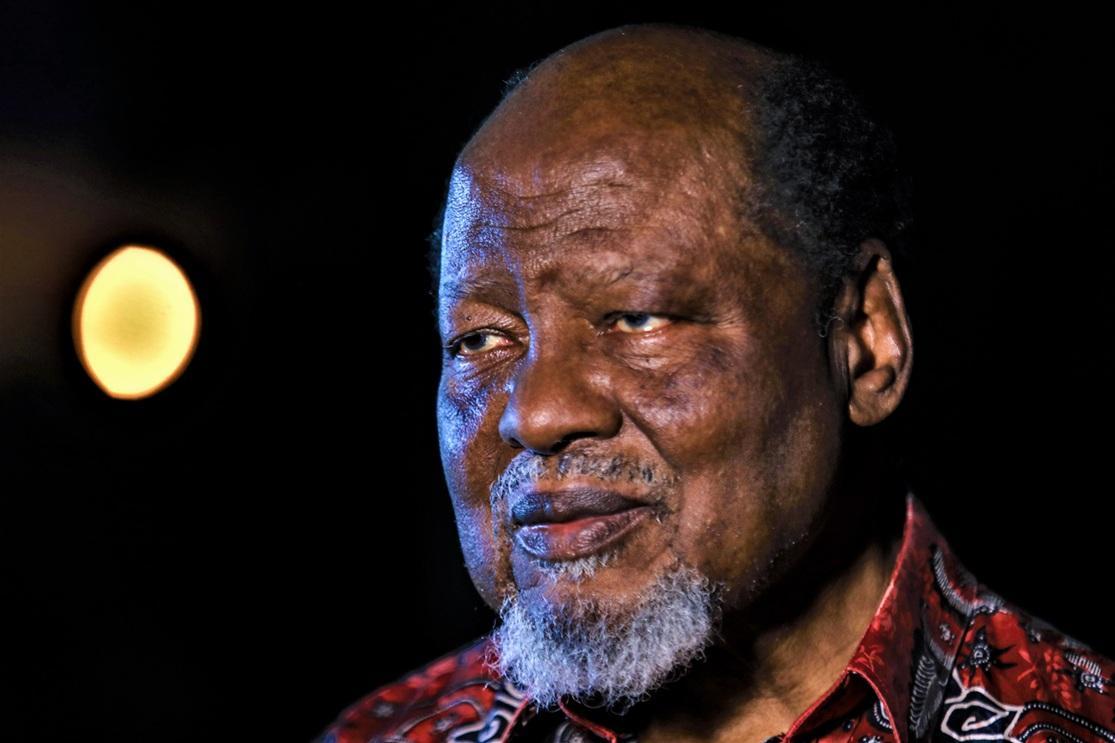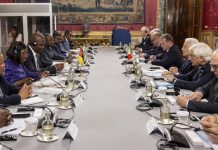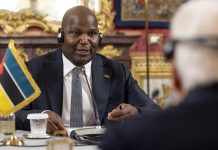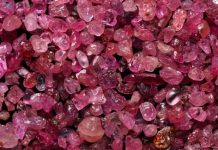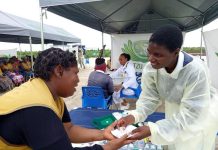Africa-Press – Mozambique. Former Mozambican president Joaquim Chissano rejects the need for reparations to the country for Portugal’s colonial past, instead advocating “good cooperation” and reciprocal investment between Mozambique and Portugal.
“Reparations are just about having good cooperation, investments. And after some time, now, because Mozambicans are also getting an idea of how to make an investment, they will also be able to invest in Portugal, just as the Portuguese can invest here,” said the former president (1986 to 2005) in an interview with Lusa in Maputo.
“I think we have this openness to grow together. And it is a spirit that should also spread to several European countries where there are no superiors and inferiors,” he added.
Joaquim Chissano, 85 years of age, is the oldest of the three former presidents still alive, and an honorary president of the Mozambique Liberation Front (Frelimo), a movement in which he was involved since 1963, and which he recalls as being crucial in the independence process, a long-held conviction for many.
“And then, when it came to the armed struggle, then the conviction grew a lot, due to the successes we had in the early days of that struggle. I’m talking about 1964, 1965, 1966, until there was that effort by the colonial army, they created a gigantic operation that was called the ‘Gordian Knot’. And when we managed to overcome that ‘Gordian knot’, that is, undo the ‘Gordian Knot’, then we became more confident. That was always the spirit,” Chissano stated.
Operation ‘Gordian Knot’ was the largest Portuguese military campaign in Mozambique during the colonial war, lasting seven months in 1970, mobilizing 35,000 soldiers to try to put an end to the entry of independence guerrillas along the border with Tanzania and to destroy their permanent bases in that area of the north of the country.
Chissano succeeded Samora Machel, who proclaimed independence in 1975 and died in a plane crash in 1986, and was also the first President of the Republic of Mozambique to be democratically elected, in the multi-party elections of 1994.
However, Chissano also recalls that after the colonial war ended on April 25, 1974, the negotiations for independence with the Portuguese government, in which he participated, were “very serious” and with the Mozambicans guaranteeing that the “fight was not against a people, the Portuguese”.
“But it was against a regime, a system, which is the colonial system, and coupled with apartheid and racist regimes, that was it. And, therefore, in the negotiations we tried to find ways of reconciliation and to look at each other in terms of equality,” he said.
“Relations between Mozambique and Portugal grew from the beginning, especially because the negotiations were based on people who were involved in the struggle, they knew what each one suffered. The other suffered too. And there was also the understanding that Portugal was a country that also needed to grow, to free itself,” he pointed out.
“It was a struggle for the Portuguese, as it was a struggle for the Mozambicans. So, there was a good understanding.”
And the confidence that Chissano says he saw more than 50 years ago is the same that he sees today in younger Mozambicans, despite the difficulties. “I believe that our people believe that we will bring about transformations. What we need to do is always correct the deviations that occur. There are wars between us, even if they are caused by foreigners, and then there are wars between us. And we are correcting them and increasing our unity and our resilience,” he explained.
The African Union has declared 2025 the year of “Justice for Africans and People of African Descent, through Reparation”, and the head of Mozambican diplomacy has guaranteed the country’s support for this goal, especially as it marks the 50th anniversary of the proclamation of Mozambique’s independence from Portuguese colonial rule.
“The sensitive and delicate nature of this issue is recognised, as it also involves reparations for deportations, mass massacres, arbitrary detentions, the use of torture, the looting of natural resources and nuclear tests with catastrophic human and environmental impacts, during the period of colonisation,” said the Minister of Foreign Affairs and Cooperation, Maria Manuela Lucas, on 25 May, Africa Day.
She recalled that the choice of this theme was based on the fact that the African Union, “in its reflections on the past, felt that the time had come for Africa, in a calm manner”, in coordination with the Caribbean Community and the African diaspora and pan-Africanist movements, among others, to “revisit what must have been one of the darkest pages in the history of the existence of the African peoples”.
For More News And Analysis About Mozambique Follow Africa-Press

